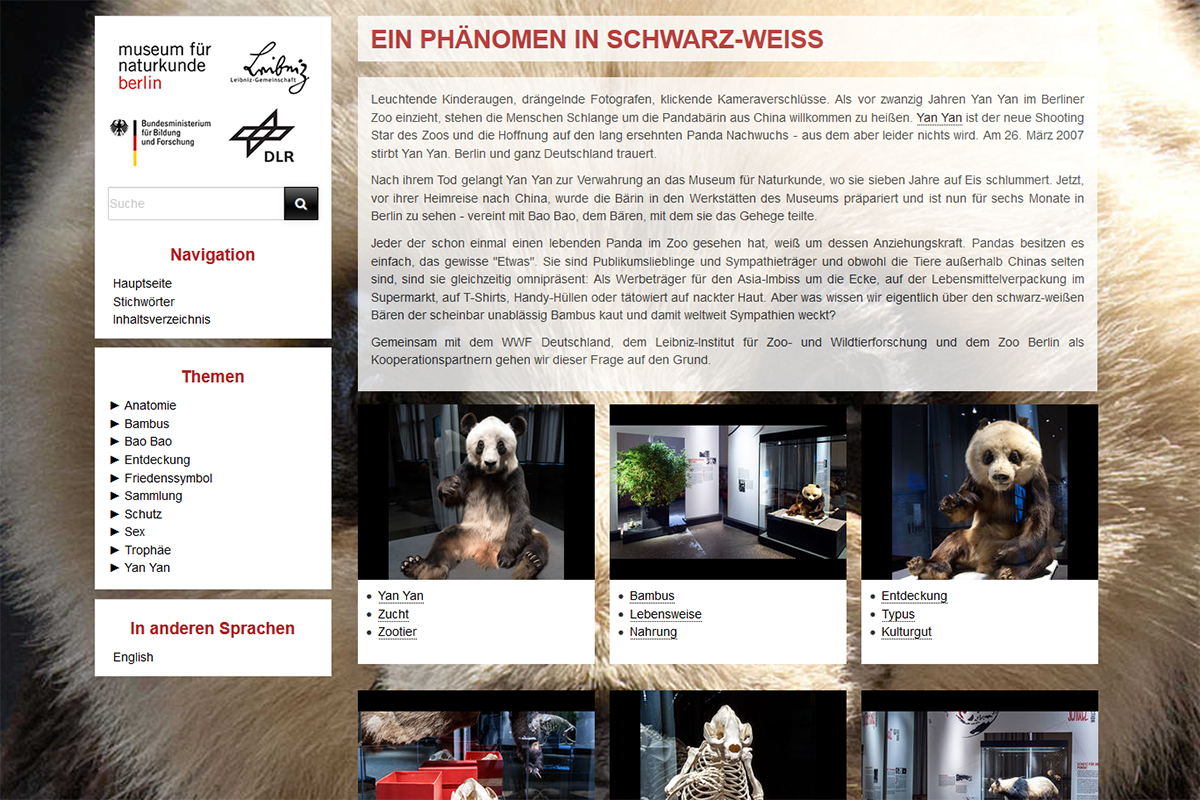Wiki Approach and Collaborative Work in a Research Museum
In the mid-1990s, a programmer named the world's first Wiki after the "Wiki Wiki" airport shuttle bus in Honolulu. “Wiki” is the Hawaiian word for “fast”. The idea of web pages that can be edited easily and quickly by any user has proven very successful.
Researchers at the Museum für Naturkunde Berlin have therefore investigated to what extent wikis can support the public information mission of research museums and the cooperation among their staff.
Collection Management, Panda & Co.
“The question guiding us was whether we could use wiki technology to collaboratively gather knowledge and create real benefits rather than additional effort,” says project leader Eva Patzschke. Her team created three wikis as use cases. Thematically, these platforms were dedicated to collection management, collectors and their history, and exhibition management. Later another wiki on the special exhibition “Panda” was added.
Wikis are designed for easy access. Editing and reading is done using the web browser. Extensions for full text search, a list of latest changes, versioning and user administration are readily available. In the project, volunteers took part in three working groups to set up the use cases.
“During wiki conception, we organised workshops with the working groups, which was much appreciated,” reports Patzschke. There was a perceived need to exchange ideas and work together to make knowledge available in one place and easily accessible to a larger circle. For example, collection staff were able to save time through using a wiki to provide information about collectors and their objects, which today are distributed among different subcollections of the museum and sometimes different museums.
Key ingredients
“We have established that the tangible benefit for employees is the decisive criterion for wiki use,” says Patzschke. Furthermore, it was shown that the platforms had to be as user-friendly as possible and that it was important to support the users in formulating their needs, especially during the development phase. In order to establish wikis on a long-term basis, ongoing technical and editorial support is also required.
A limiting factor for the use of wikis is the time required to enter content. Few users actively authored articles. However, this is similar for large wikis with many thousands of users, says Patzschke and adds: “Wikis are well suited for research museums, especially for compiling, linking, and effectively using individual knowledge”. The work with a wiki is being continued in the follow-up project IKON.
Funding
German Federal Ministry of Education and Research (BMBF)
